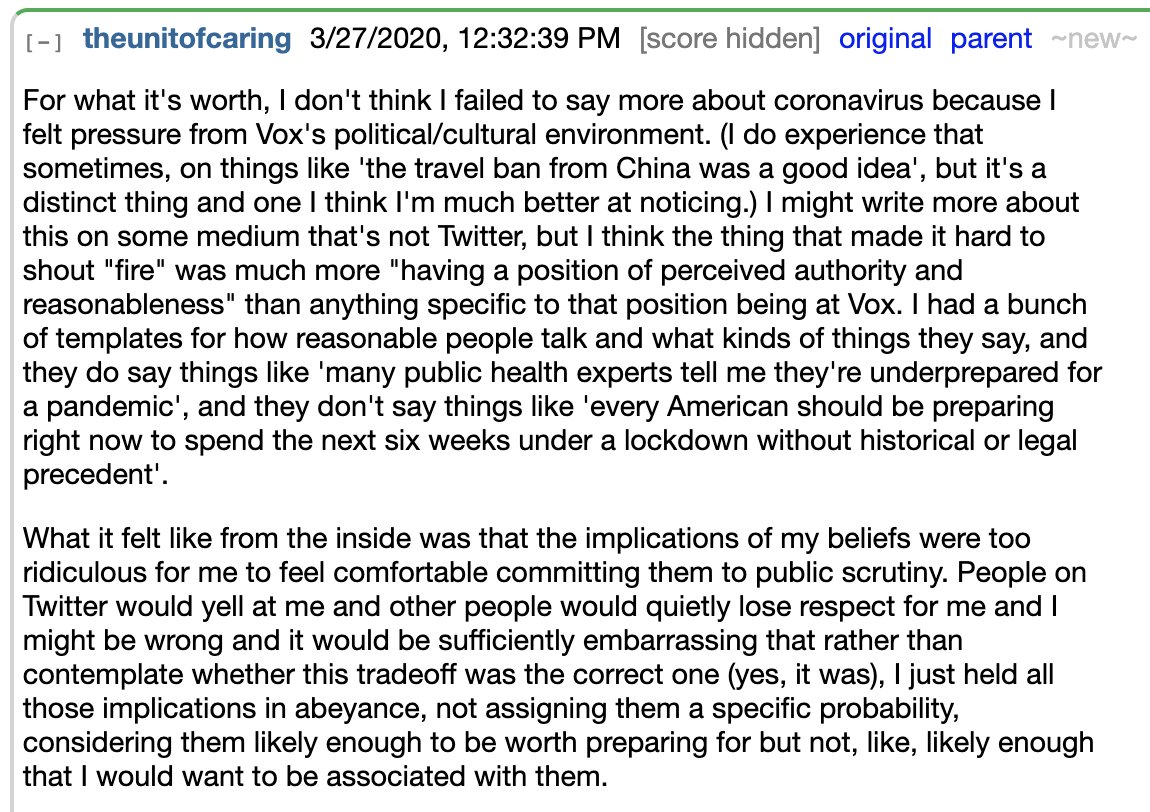
I think it's tragically under-acknowledged that your epistemological approach *ought* to be different depending on your goal(s)
in other words, what you *should* identify as truth, versus discard as false negative or false positive, depends on the endeavor that you're pursuing
in other words, what you *should* identify as truth, versus discard as false negative or false positive, depends on the endeavor that you're pursuing
for example, I don't think that atheists are *wrong* per se, but they've foregrounded a salience framework — a paradigm of what is most important, epistemically — that I disagree with and consider misguided. this is because we have different priorities re: how to order world-data
this is nigh-impossible to discuss, the friction and gaps between different totalizing models, because the models and their adherents tend to get mad if you acknowledge that "snapshots" from a rival reality-capture can be valid, can depict things that are "real" and worth seeing
anyway consider all of the above to be rough notes
using this comment to expound a bit more on a related issue that drives me crazy
so, there's objective morality, "objective" meaning that anyone applying X standards to Y data would generate Z result. but there are many sets of standards!
https://twitter.com/IvyAstrix/status/1366487806290223109
so, there's objective morality, "objective" meaning that anyone applying X standards to Y data would generate Z result. but there are many sets of standards!
which is the "one true" objective morality? I think this is a category error or something like that. morality depends on subject and purpose; morality in a vacuum doesn't make any sense. it requires context and circumstances to be the thing that it is
I don't think that Christian morality is the "one true" morality in the way that people usually mean that notion
except *inside* of the Christian framework — and usually I *am* inside of it!
however
except *inside* of the Christian framework — and usually I *am* inside of it!
however
but I do think it is the *best* morality, built on the most accurate, effective ontology — which is a distinct judgment, and a subjective judgment, one that depends on the totality of world-knowledge that I've recorded and interpreted throughout my life, on my values, on my goals
• • •
Missing some Tweet in this thread? You can try to
force a refresh



